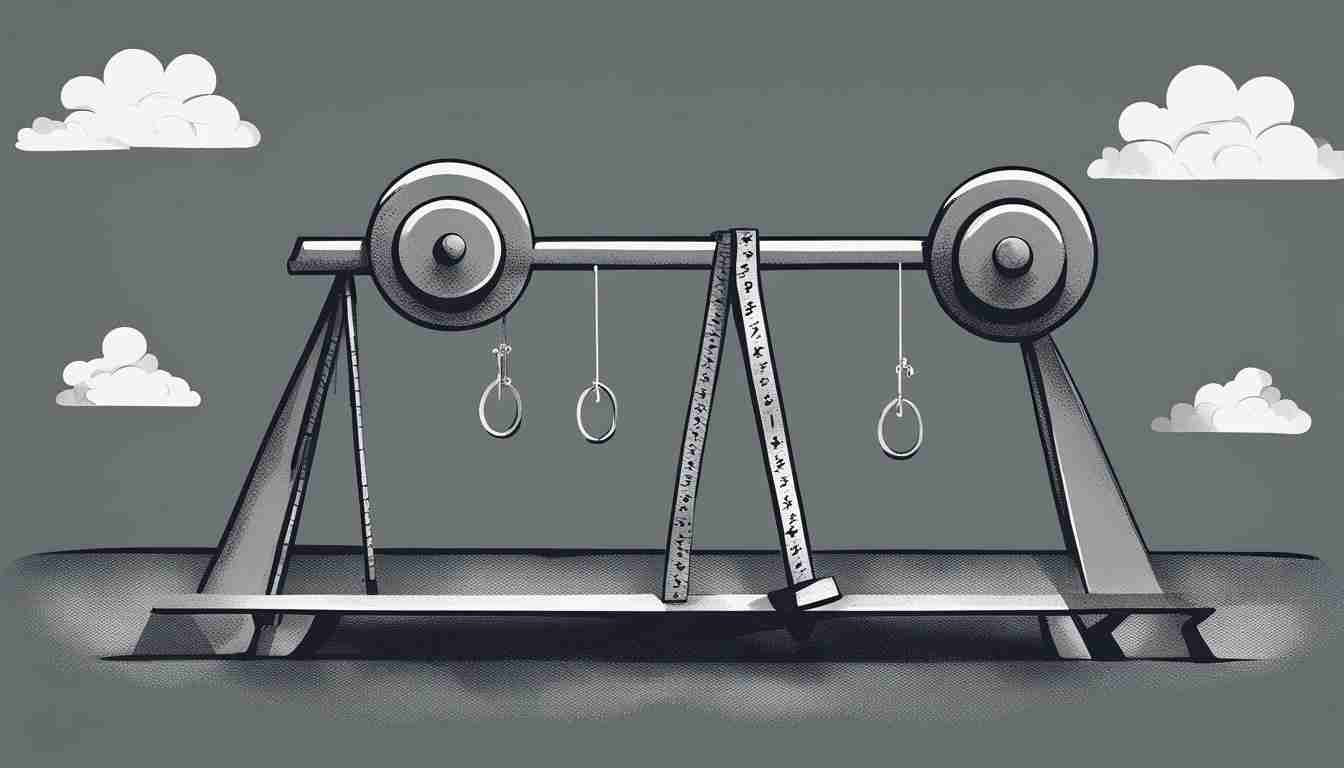Life can be challenging, and there are times when we all struggle to find motivation. But for those dealing with depression, ADHD, or other mental health conditions, staying motivated can feel like an impossible task. The good news is that it’s possible to find motivation even in adversity. Individuals can build resilience and achieve their goals by understanding these conditions and learning strategies to manage symptoms.
Key Takeaways:
- Mental health conditions like depression and ADHD can impact motivation and resilience.
- Practical strategies such as self-motivation techniques can help individuals overcome these challenges.
- Building resilience is crucial to coping with adversity related to mental health.
- Seeking professional help and support is an essential step in managing mental health.
Understanding
Depression and ADHD are two common mental health conditions that can significantly impact an individual’s motivation and ability to cope with adversity.
Depression is a mood disorder characterized by sadness, hopelessness, and a lack of interest or pleasure in once-enjoyable activities. It can affect a person’s energy levels, sleep patterns, appetite, and well-being. Individuals with depression may feel overwhelmed by even simple tasks and struggle to find the motivation to complete them.
ADHD is a neurodevelopmental disorder that affects a person’s ability to focus, control impulses, and manage time. It can lead to difficulty with organization, forgetfulness, and distractibility. Individuals with ADHD may struggle to prioritize tasks and complete them efficiently, leading to feelings of frustration and being overwhelmed.
Both depression and ADHD can make it challenging to maintain a positive mindset and stay motivated in adversity. However, there are strategies that individuals can use to manage their symptoms and build resilience.

“Depression is a mood disorder characterized by feelings of sadness, hopelessness, and a lack of interest or pleasure in activities that were once enjoyable.”
Motivational Strategies for Overcoming Depression and ADHD
Dealing with depression and ADHD can be a significant challenge that affects an individual’s ability to feel motivated and achieve their goals. However, several motivational strategies can help overcome these obstacles. Below are some practical tips that can assist in boosting self-motivation and overcoming the difficulties associated with these mental health conditions.
Focus on Small Accomplishments
Setting small goals is an effective way to combat depression and ADHD. Individuals can build confidence and motivation to tackle more significant tasks by focusing on achieving small accomplishments. Additionally, breaking down larger goals into smaller ones makes them more manageable and less overwhelming, which can be a familiar feeling for those with depression and ADHD.
Find a Support System
Having a strong support system is an essential aspect of coping with depression and ADHD. Family, friends, and online support groups can provide a sense of belonging and motivation. It’s vital to surround yourself with people who uplift and inspire you and those who understand the challenges and complexities of these conditions.
Incorporate Self-Care Techniques
Self-care techniques such as yoga, meditation, exercise, and a balanced diet can be essential in managing depression and ADHD. Engaging in physical activity releases endorphins, the body’s natural feel-good chemicals. Practicing mindfulness activities such as meditation or yoga can help reduce stress, anxiety, and negative thoughts, leading to more motivation and positivity.
Consider Seeking Professional Help
If the above strategies are ineffective in managing depression and ADHD, it’s essential to consider seeking professional help. A therapist or counselor can provide additional support and guidance on managing symptoms and building resilience. A healthcare provider can also recommend medication or other treatment options if necessary.
By implementing these motivational strategies, individuals can overcome the challenges associated with depression and ADHD. Remember, asking for help and taking things one step at a time is okay. Each accomplishment, no matter how small, leads to overall success and happiness.

Building Resilience and Coping with Adversity
Developing resilience is essential when facing adversity, especially when dealing with depression, ADHD, or other mental health conditions. Resilience is the ability to adapt and cope with stress and challenges, and it can be strengthened through intentional practice and mindset shifts.
One way to build resilience is by focusing on developing a growth mindset. This means viewing challenges as opportunities for growth and learning rather than as insurmountable obstacles. It involves reframing negative thoughts and beliefs into more positive and empowering ones.
For example, instead of thinking “I’ll never be able to manage my ADHD,” try reframing it to “I’m learning strategies to better manage my ADHD.”
Another way to build resilience is by caring for yourself physically and mentally. This includes getting enough rest, eating a healthy diet, staying active, and practicing self-care activities such as meditation or yoga. By prioritizing self-care, you can better cope with stress and maintain a positive outlook.
In addition to self-care, seeking support from others can also help build resilience. This can include friends, family, support groups, or mental health professionals. A solid support system can provide encouragement, guidance, and a listening ear during tough times.

It’s important to remember that building resilience is a process that takes time and effort. It involves intentionally practicing positive habits and mindset shifts, seeking support when needed, and focusing on growth and learning. By developing resilience, you can better cope with adversity and maintain motivation and mental well-being.
Seeking Support and Professional Help
Dealing with Depression and ADHD can be challenging, and sometimes it may feel overwhelming. However, it is essential to remember that help is available, and seeking support is a sign of strength, not weakness.
If you or someone you know is struggling with mental health issues, reaching out for professional help is crucial. Mental health professionals, such as therapists, psychiatrists, or psychologists, can provide guidance, support, and effective treatments.
There are also many resources available online or through hotlines. The National Alliance on Mental Illness (NAMI) is an excellent resource for information and support, including a helpline and online support groups. The Substance Abuse and Mental Health Services Administration (SAMHSA) also provides a national helpline, offering 24/7 confidential support and referrals to local mental health resources.
It’s essential to remember that managing mental health conditions is a journey, and there may be setbacks along the way. However, with the proper support and guidance, it is possible to develop coping strategies, improve motivation, and lead a fulfilling life.

Don’t suffer alone. Reach out for help and take the first step towards a happier and healthier life.
Conclusion
Dealing with depression, ADHD, or any other mental health condition can be challenging, but it’s important to remember that there’s always hope. Finding motivation in adversity is crucial to reaching your full potential and living a fulfilling life.
Throughout this article, we’ve explored practical strategies for overcoming these challenges, including seeking professional help, building resilience, and developing self-motivation techniques. Remember, you are not alone in this journey, and reaching out for support is okay.
By understanding the impact of depression and ADHD on motivation and taking active steps to manage your symptoms, you can build the resilience needed to cope with life’s most challenging obstacles. With determination and a positive mindset, you can achieve your goals and live a life of purpose and fulfillment.
So, take a deep breath, and remember that you can overcome any challenge with motivation and resilience. Stay hopeful, stay motivated, and never give up.
FAQ
Q: What is the article about?
A: The article is about finding motivation in the face of adversity, explicitly focusing on dealing with depression, ADHD, and other challenges.
Q: Why is understanding depression and ADHD significant?
A: Understanding depression and ADHD is important because it helps individuals grasp these conditions’ impact on motivation and resilience.
Q: What are some motivational strategies for overcoming depression and ADHD?
A: Some motivational strategies include setting goals, practicing self-care, seeking support, and cultivating a positive mindset.
Q: How can resilience be built and adversity coped with?
A: Resilience can be built through strategies such as developing a solid support network, practicing self-reflection and self-care, and seeking professional help.
Q: What should I do if I need support or professional help?
A: It is essential to seek support and professional help when dealing with depression, ADHD, or other mental health issues. Contact trusted individuals, consider therapy, or contact mental health helplines or organizations for assistance.





